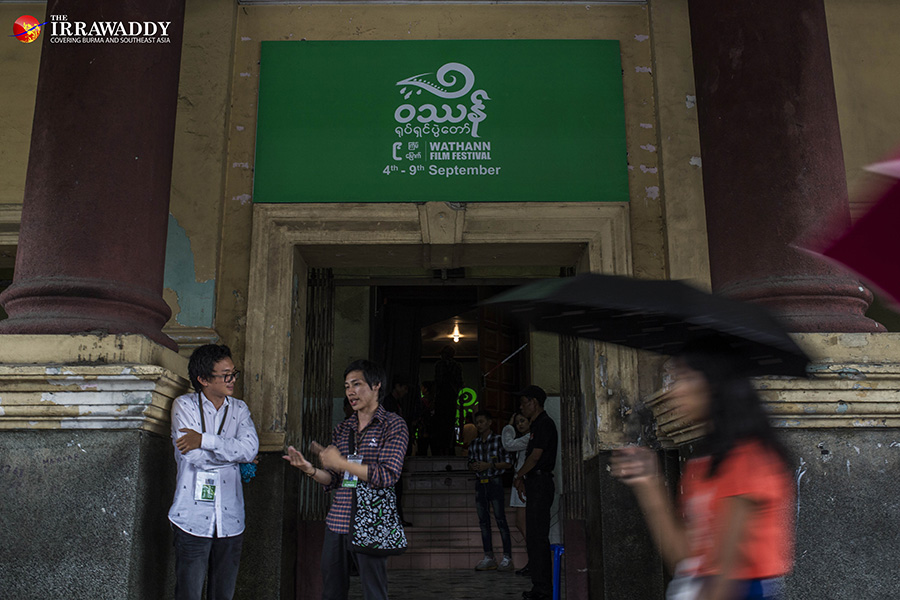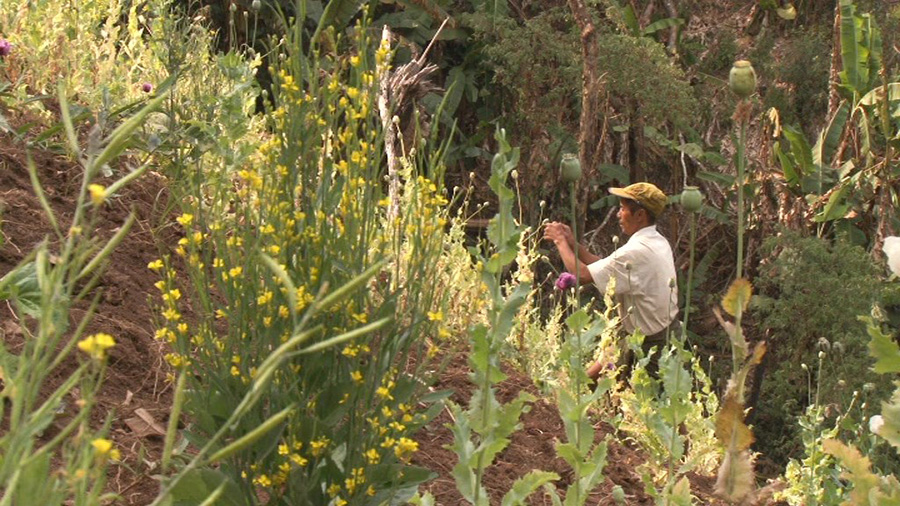YANGON—The ninth annual Wathann Film Festival (WFF), a local platform for new filmmakers, closed at the Waziyar Cinema on the evening of Sept. 9 with an award ceremony. Festival director Ma Thu Thu Shein praised the festival as a success, declaring, “This year’s edition drew even more outstanding and creative films than in previous years.”
“Not only are the films in competition getting better and more creative, we made the right choices for the other film programs, including S-Express, Highlights, Special Screening and others. We’ve received a lot of positive feedback from the visiting filmmakers, and we’re thrilled about that,” she added.
S-Express is an annual collaboration of short film programs from the 10 ASEAN member countries: Myanmar, Thailand, Singapore, Indonesia, Cambodia, Malaysia, the Philippines, Vietnam, Laos and Brunei.

“The program features a variety of topics from around the region, allowing us to ‘travel’ to those neighboring countries through film,” Ma Thu Thu Shein said.
In this year’s competition section, the festival chose 12 of the submitted films to be screened. Although the standard of the films was higher, organizers said, there were fewer submissions this year at 36, down from 57 last year.
From the final 12, five were selected to receive the Best Documentary, Best Short Film, New Vision, Audience Choice and Best Acting awards.

Director Aung Min, Keiko Sei from Japan and Dieter Wieczorek served as the judges for this edition of WFF.
“The winners—except for the Audience Choice award—each received 500,000 kyats [about US$330] and a Wathann trophy. In recent years, we presented Judges Choice awards. But the judges’ decision was always different from the audience’s. That’s why we decided to create the Audience Choice award,” Ma Thu Thu Shein said.
“Opium Farmers” by director Ma Su Su Hlaing won Best Documentary for its sensitive portrayal of the struggles and lives of two opium-farming families in Myanmar’s southern Shan State.
The subject matter was not only fascinating, but also rare for a mainstream film festival, and it deserved to win.

“I did not expect to win this award and really want to say thanks to my whole crew. I wanted to compete at Wathann for the previous two years, but I didn’t get the chance because I was working for other filmmakers to make a living. So, I’m so happy to receive this award,” Ma Su Su Hlaing said.
The Best Short Film award went to “Sick” (Luu Nar) by director Ko Zaw Bo Bo Hein. The film depicts the predicament of a man who takes a sick friend to a local health clinic one night, only to be told by the nurse that the man is seriously ill and requires treatment at a larger, more expensive hospital, prompting the man to leave his friend and go in search of money. The film examines themes of friendship and the cost of health care.
“It’s my fourth time here at Wathann. Finally, I won a prize. When many people appreciate an artwork you’ve created, it’s an amazing feeling—I’m so happy,” Ko Zaw Bo Bo Hein said.
Two films, “¼ wasted” and “Between” by directors Myo Thar Khin and Than Lwin Oo, shared the New Vision Award.

“Both films are about unusual topics. So the judges chose both of them,” explained Ma Thu Thu Shein.
The Audience Choice award went to “Acceptance” by director Nyi Zaw Htwe. Daw Myint Myin Thein, who plays the main role in the film, won the Best Acting award.
“Even though indie films are still not very popular in Myanmar, we saw a lot of local filmgoers attend the festival. People are starting to notice indie films, which is good,” Ma Thu Thu Shein said.
She added, “The films submitted to this year’s competition section were all great. The short films showed an improvement from the past, and we need more documentary films. And I hope to see even more creative films in the future.”
Over 90 films were screened at this year’s festival, including local and international shorts, documentaries and animated films. Filmmakers from Japan, Germany, Singapore, Thailand, Malaysia and Brunei also attended the festival.
WFF is the oldest independent competitive film festival in Yangon. It was launched in September 2011 by local filmmakers Thu Thu Shein and Thaid Dhi. It is a platform for independent local and international filmmakers.
This year’s festival was held at Waziya Cinema, the Goethe Institut and Japan Foundation in Yangon from Sept. 4-9.

















